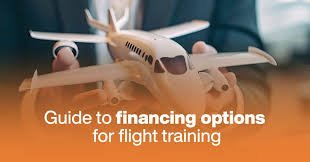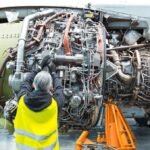Aviation Degree
In the ever-evolving landscape of aviation, individuals often find themselves at a crossroads when deciding between pursuing an Aviation Degree or embarking on a career as an Aviation Technician. Both paths offer unique opportunities for growth and advancement within the aviation industry. In this comprehensive guide, we’ll delve into the intricacies of each option, equipping you with the knowledge to make an informed decision about your future.

Understanding Aviation Degree Programs
What is an Aviation Degree?
An Aviation Degree encompasses a broad spectrum of disciplines, ranging from aviation management and operations to aeronautical engineering and pilot training. These programs are designed to provide students with a comprehensive understanding of the aviation industry, preparing them for diverse roles within airlines, airports, and regulatory agencies.
Benefits of Pursuing an Aviation Degree
- Specialized Knowledge: Aviation degree programs offer in-depth instruction in various aspects of aviation, including safety protocols, navigation systems, and airspace regulations.
- Career Versatility: Graduates of aviation degree programs possess a diverse skill set that qualifies them for roles as pilots, air traffic controllers, aviation managers, and more.
- Networking Opportunities: Many aviation degree programs offer internships and networking events that allow students to establish connections within the industry, paving the way for future career opportunities.
Career Trajectories with an Aviation Degree
Upon completing an aviation degree program, individuals can pursue a multitude of career paths, including:
- Commercial Pilot: Flying passenger or cargo aircraft for airlines or charter companies.
- Airport Manager: Overseeing the day-to-day operations of an airport, including security, maintenance, and customer service.
- Aviation Safety Inspector: Ensuring compliance with federal regulations and safety standards within the aviation industry.
- Aerospace Engineer: Designing and testing aircraft components, propulsion systems, and navigation instruments.
Exploring the Aviation Technician Career Path
What is an Aviation Technician?
An Aviation Technician is a skilled professional responsible for maintaining, repairing, and inspecting aircraft to ensure they meet safety and performance standards. These individuals play a critical role in keeping aircraft airworthy and operational, contributing to the overall safety and efficiency of air travel.
Advantages of Pursuing an Aviation Technician Career
- Hands-On Experience: Aviation technician programs emphasize practical, hands-on training in aircraft maintenance and repair techniques.
- High Demand: With the continual growth of the aviation industry, there is a consistent demand for skilled aviation technicians to service and maintain aircraft fleets.
- Career Stability: Aviation technician roles offer a stable career path with opportunities for advancement and specialization within the field.
Career Opportunities for Aviation Technicians
Graduates of aviation technician programs can pursue various career paths, including:
- Aircraft Maintenance Technician: Performing routine inspections, repairs, and maintenance tasks on aircraft components and systems.
- Avionics Technician: Specializing in the installation, troubleshooting, and repair of aircraft electronic systems, including navigation, communication, and instrumentation.
- Quality Control Inspector: Ensuring compliance with maintenance procedures and regulatory requirements through meticulous inspections and audits.
Making an Informed Decision
Factors to Consider
When choosing between an Aviation Degree and an Aviation Technician career, consider the following factors:
- Personal Interests: Assess your interests and aptitudes to determine which path aligns with your career goals and aspirations.
- Educational Preferences: Decide whether you prefer a more theoretical and academic approach (Aviation Degree) or hands-on, technical training (Aviation Technician).
- Long-Term Goals: Consider your long-term career objectives and how each option aligns with your desired trajectory within the aviation industry.
Seek Guidance and Resources
Consult with industry professionals, academic advisors, and career counselors to gain insights and guidance regarding your career path. Additionally, leverage online resources, professional organizations, and networking events to expand your knowledge and connect with individuals in your desired field.

Aviation Degree:
- Education: Pursuing an aviation degree typically involves a comprehensive education covering various aspects of aviation, including theory, regulations, navigation, and management.
- Career Opportunities: With an aviation degree, you can pursue a wide range of careers within the aviation industry, such as becoming a pilot, air traffic controller, aviation manager, aerospace engineer, or aviation safety inspector.
- Specialization: Aviation degrees often allow you to specialize in specific areas of interest, such as commercial aviation, aviation maintenance, airport management, or aviation safety.
- Long-term Growth: A degree in aviation can provide opportunities for long-term career growth, as it equips you with the knowledge and skills needed to advance in various sectors of the aviation industry.
Aviation Technician Career:
- Hands-On Experience: Pursuing a career as an aviation technician offers hands-on experience working directly with aircraft maintenance, repair, and troubleshooting.
- Specialized Training: Aviation technician programs focus on providing specific technical skills and certifications required for aircraft maintenance and repair. This can lead to quicker entry into the workforce compared to a degree program.
- Job Stability: Aviation technicians play a crucial role in ensuring the safety and airworthiness of aircraft, leading to relatively stable job prospects within the aviation industry.
- Career Advancement: While starting as a technician, there may be opportunities for career advancement into roles such as lead technician, inspector, or maintenance supervisor. However, advancement beyond these positions may require further education or certification.
Consider your interests, strengths, and career aspirations when making your decision. If you’re passionate about aviation and enjoy a hands-on approach to working with aircraft, a career as an aviation technician might be a good fit. On the other hand, if you’re interested in a broader understanding of aviation and are considering roles beyond maintenance and repair, pursuing an aviation degree could open up a wider range of career opportunities. Ultimately, both paths offer rewarding careers within the aviation industry, so choose the one that aligns best with your goals and interests.
Frequently Asked Questions (FAQ) :
1. What is the difference between an aviation degree and a career as an aviation technician?
- An aviation degree typically involves comprehensive education covering various aspects of aviation, while a career as an aviation technician focuses on hands-on training for aircraft maintenance and repair.
2. What are the career opportunities with an aviation degree?
- Aviation degree holders can pursue careers as pilots, air traffic controllers, aviation managers, aerospace engineers, aviation safety inspectors, and more, depending on their specialization.
3. What are the advantages of pursuing an aviation technician career?
- Aviation technicians gain hands-on experience working directly with aircraft maintenance and repair, leading to quicker entry into the workforce, job stability, and opportunities for career advancement within the aviation industry.
4. Can I specialize in specific areas within aviation with an aviation degree?
- Yes, many aviation degree programs offer specializations such as commercial aviation, aviation maintenance, airport management, aviation safety, and more, allowing students to focus on their areas of interest.
5. What qualifications do I need to become an aviation technician?
- Typically, aviation technicians need to complete specialized training programs or obtain certifications from aviation maintenance schools or technical institutes. Some employers may also require a high school diploma or equivalent.
6. Is a degree required to work as an aviation technician?
- No, a degree is not always required to work as an aviation technician. However, obtaining a degree in aviation or a related field may provide additional opportunities for career advancement and specialization within the industry.
7. How long does it take to complete an aviation degree program?
- The duration of an aviation degree program can vary depending on the level of education (e.g., associate’s, bachelor’s, master’s) and the institution. Typically, bachelor’s degree programs in aviation take around four years to complete.
8. What skills are essential for success in aviation careers?
- Essential skills for aviation careers include strong problem-solving abilities, attention to detail, communication skills, technical proficiency, teamwork, adaptability, and a commitment to safety.
9. Are there opportunities for career growth in both aviation degrees and aviation technician careers?
- Yes, both paths offer opportunities for career growth and advancement. Aviation degree holders can advance into various managerial, supervisory, or specialized roles within the aviation industry, while aviation technicians can progress into lead technician, inspector, or maintenance supervisor positions.
10. How can I decide between pursuing an aviation degree and a career as an aviation technician?
- Consider your interests, strengths, career goals, and desired level of involvement in the aviation industry. If you prefer a broader understanding of aviation and are interested in roles beyond maintenance and repair, an aviation degree might be suitable. If you enjoy hands-on work with aircraft and want to quickly enter the workforce, a career as an aviation technician could be the right choice.


